Going Down (South) is a regular column about y’all being a gender neutral pronoun, how red states are actually more of a purplish color, boiled peanuts, and the trials and tribulations of being a rural homo — with an emphasis on the tribbing.
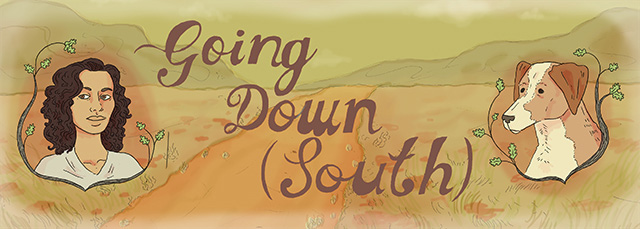
Header by Rosa Middleton
With North Carolina’s constitutional ban on gay marriage and the KKK fighting to adopt a Georgia highway, it seems like the South hasn’t made much progress in the history of ever.
But the Confederacy doth protest too much. Underneath the traditional values and worn-out denim is a pair of hot pink Long Johns. When a region is so distant from progressiveness, it’s bound to be a little eccentric, a little otherly, and have more indignant queer subtext than an episode of Rizzoli and Isles.
+
The Food
+
“I remember women by what we ate together, what they dug out of the freezer after we’d made love for hours. I’ve only had one lover who didn’t want to eat at all. We didn’t last long. The sex was good but I couldn’t think what to do with her when the sex was finished. We drink spring water, and fight a lot.”
– Dorothy Allison, “A Lesbian Appetite”

Like many things, rural Southern cuisine hasn’t changed much since Sherman’s March to the Sea. Yet unlike outdated gender roles, this actually works in the South’s favor.* Soul food’s “one part Crisco, two parts social” ethos is so far removed from the mainstream beauty ideal; nutrition and community are valued much more than slim waistlines. You’re more likely to be hollered at for skipping a meal than reaching for a fifth helping of peach cobbler. Unknowingly, I grew up in a fat-positive environment where the bias was often against the slender image that — I later learned — seemed to be glorified elsewhere.
*Yes, I know that the American South is obese. Yes, I know that there is a correlation between obesity and poverty. No, I’m not glorifying an unhealthy way of living. I’m only pointing out a positive side effect. Laughter through tears is my favorite emotion, etc.
+
The Books
+
“Oh, she say. God loves all them feelings. That’s some of the best stuff God did. And when you know God loves ’em you enjoys ’em a lot more. You can just relax, go with everything that’s going, and praise God by liking what you like.
God don’t think it dirty? I ast. Naw, she say. God made it. Listen, God love everything you love.”
– Alice Walker, The Color Purple
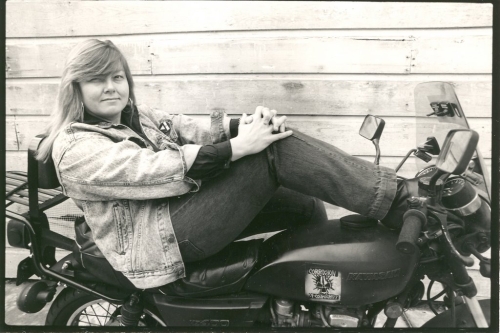
Alice Walker was writing about lesbian sex before Ellen was having it. In fact, homoeroticism is a big thing in many celebrated works of Southern literature. Queer men abound in Tennessee Williams’ A Streetcar Named Desire and Cat on a Hot Tin Roof, and the same goes for William Faulkner’s protagonist in Light in August, Flannery O’Connor’s The Violent Bear It Away and Truman Capote’s Other Voices, Other Rooms.
While Rita Mae Brown’s more recent work revolves around cat detectives (um…), Molly Bolt loves up every pretty lady she encounters in Rubyfruit Jungle. Many of Dorothy Allison’s short stories follow that same pattern.
And it’s not just the gays, many authors that weren’t queer were masters at writing resilient Southern women. Jay Gatsby couldn’t hold a candle to Harper Lee’s Scout Finch (To Kill a Mockingbird) or Zora Neale Hurston’s Janie Crawford (Their Eyes Were Watching God).
+
The Outdoors
+
I felt the starched walls of a pink cotton penitentiary closing in on me, and for the second time in my life I thought of running away.” – Scout Finch,To Kill a Mockingbird
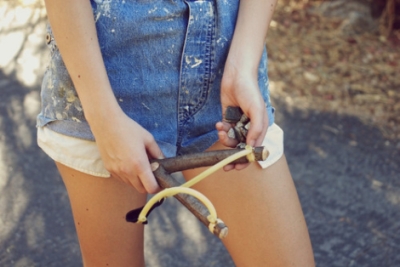
In the rural South, the word “tomboy” is basically a euphemism for “she’s genderqueer, and she may or may not grow out of it. Hell if we know.” No one really raises a brow or bats an eyelash if a woman wants go hunting, fishing, mudding, noodling, camping, cowtipping, corn shucking, or any other outdoor activity — except skydiving and bungee jumpin’ because that sh*t just ain’t conservative. Getting one’s hands dirty and wearing pants are not things that challenge femininity or a Southern identity. On the contrary: It’s seen as being in touch with the land and the assumed heritage that comes with it.
I maintain that this is the reason why the ratio of pumps to deck shoes I own is 1:10.
+
The Music
+
“There is a connection to the land that just transcends your sexuality, your gender, and your race, and everything. And there’s a connection to the music that came from out of Appalachia and it infiltrates and affects everything that you’re doing. – Amy Ray, The Indigo Girls
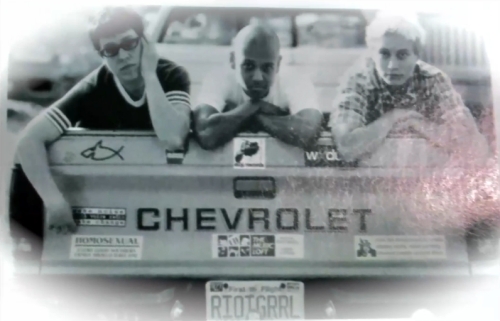
The Indigo Girls — that folk duo that The L Word versed us in not once but twice — actually got its start opening for punk bands in Athens, Georgia in the 80s. It’s an odd match and while I can’t exactly envision mohawked people throwing up rock hands and moshing to “Closer to Fine,” the Indigo Girls’ message is often a very political, very punk one. The duo’s songs rely on rural imagery in the style of country music, yet fearlessly call out social injustice. The song “Shame on You” slaps racist wrists:
They say, ‘We be lookin’ for illegal immigrants
Can we check your car?’
I say, ‘You know it’s funny
I think we were on the same boat
Back in 1694’
The Indigo Girls’ relationship with punk rock came full-circle when the queercore band The Butchies began opening for them. Founded by two former members of Team Dresch at the tail end of the riot grrrl movement, The Butchies weren’t based in Olympia or even Portland, but Durham, North Carolina. In 2000, The Butchies performed a cover of Creedance Clearwater Revival’s “Unfortunate Son” with West-Coast-based Gossip and Sleater Kinney.
[youtube https://www.youtube.com/watch?v=3AlPVC4lggM&version=3&hl=en_US&rel=0]
While Gossip frontwoman Beth Ditto made her big queer pilgrimage to the Pacific Northwest a decade prior, her Arkansas drawl tints both this song and every interview she gives. Before she was an electropop diva, Ditto was a punk blues maven. Gossip’s debut album, That’s Not What I Heard showcases her without the aid of a synthesizer and, wouldn’t you know, Ditto’s capable of Aretha Franklin levels of soul power.
+
The Women
+
I’ve often heard tales of strong Southern women. My own past is full of single women who, abandoned by the men in their lives, took extreme measures to care for their children…It seemed the South was full of brave and determined women who had never met one another—distracted by poverty, religion and loyalty to a land that hadn’t done them any favors.” – Ashley Sayeau, “Southern Ms.”
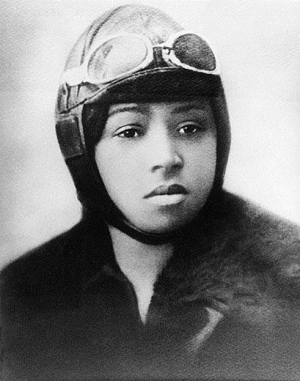
Like many Southern women I know, I didn’t have just one mother — I had a team of them, composed of family friends and non-biological aunts and godmothers. The women who raised me were larger than life, commanding space and demanding acknowledgement. Even something a mundane as creating a meal for 12 turned into an Olympian effort. While the diet magazines in the supermarket checkout line collected dust, they wielded their power with the precision of a KitchenAid Mixer and everyone knew that they held Sunday afternoon luncheon in their collective balance.
The first person who introduced me to Fried Green Tomatoes wasn’t another lesbian, but my own mother. I was five and Idgie Threadegoode’s younger incarnation was the only thing capable of holding my attention through the movie. I harmlessly wanted her to be my best friend. In retrospect, I understand that my mom desired that same aspect of Idgie and Ruth’s relationship.
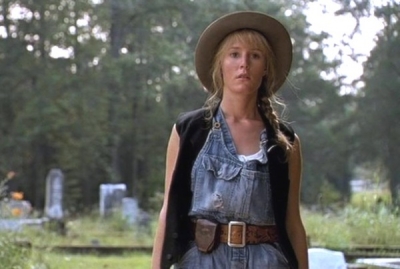
Maybe, while they’ll likely take it to their graves, the women who raised me were just a little bit feminist. And maybe even a little bit queer.
Bless their hearts (and not in the bad way.)
Special Note: Autostraddle’s “First Person” personal essays do not necessarily reflect the ideals of Autostraddle or its editors, nor do any First Person writers intend to speak on behalf of anyone other than themselves. First Person writers are simply speaking honestly from their own hearts.








Comments
I LOVE THIS. I spend an uncouth amount of time defending the South. I know we’re far from perfect, particularly with regard to gay anything in a legal context, but it’s not the hellhole people think it is.
Seconded. Wonderful article! And now I need an excuse to make the 4 hour drive to Claxton, GA…
yep, you got it. this is exactly what i wish more people knew about the south, so thank you for writing it! i grew up on alice walker and amy ray, and was/am certainly a tomboy.
This is absolutely lovely. I’ve written/thought like this in various forms over the past couple of years as I’ve realized the positive aspects of growing up queer in the south. Great piece!
This was lovely. It can be such a complicated thing, being queer and Southern, especially with what the South seems to have become in the rest of the country’s collective imaginary (regressive and homogenous and a place good for little beyond escaping). And so much yes to the food section. Fried okra, barbecue and sweet tea are things I never want to live without.
thissss is great.
i think a lot of people who aren’t from the south just assume that its just backwards and gross and nothing good comes out of it ever blah blah blah. and yeah it can totally suck if you stray outside of the norm, but there’s just this thing in the air that i can never explain, and maybe it’s just that is feels so familiar, but i don’t know, you get attached to the little bumpy roads, the old grave yards, running around in the woods, even in the insane humidity. i don’t know. i can’t imagine growing up anywhere else.
plus sweet tea, HELLOOOOO.
FRIED. OKRA.
Lordy me.
Geez, this is wonderful.
It like sums up visits to my grandparents in North Carolina over the holidays and summer almost perfectly. When my Papaw wasn’t showing me how to widdle wood he was taking me fishing. They didn’t have cable and only owned 3 movies on VHS, which were Pollyanna, Forrest Gump and Fried Green Tomatoes.
Oh and hells bells, did I mention my gramps was a minister?
Excuse me, whittle wood. I haven’t had coffee yet.
HIGH FIVE FOR BEING MINISTER’S KIDS.
don’t try to debate with me on the bible. i will destroy you and fertilize my garden with the ashes.
*presents an unofficial comment award to AG*
Fellow PK’s? And here I thought I was one of few here :)
I love being queer. I love being Southern. I wouldn’t be any other way.
Another PK here! Go team!
United Queer PK’s of Autostraddle.
Make it a thing.
Meeee toooo (or is that five?) :)
“don’t try to debate with me on the bible. i will destroy you and fertilize my garden with the ashes.”
*claps*
This is a marvellous article. I’m an unrepentant Northerner, myself, and terribly urban to boot, so I tend to get a bit snobbish. (I blame this on my mum, the Chicagoan; my dad’s side of the family ventures down into Appalachia and redneck territory) I have a fair scattering of friends from down South, though; Louisiana, Arkansas, Georgia, Texas, and we occasionally get into joking competitions about why our respective regions are more awesome than the other.
But I always love for my stereotypes to be proven wrong, and I’ve rarely thought about the South in a queer light, other than the knowledge that Austin is the queer oasis in the middle of Texas. So thank you!
I’ve lived all my life in Washington, but my family comes from Mississippi and Louisiana and has for generations. I was raised very much a southern girl. Heck, my mom made national news as a kid for writing the president wanting to join the boy scouts. I learned to shoot before I learned to ride a bike. Tomboys are rampant and fried food and fish boils abound.
I loved this article so much. Some of the nicest people I’ve met were in the south. Like… Just the way they treat total strangers is amazing. And, to my surprise, some of the most outspoken straight allies in my family live in Louisiana. (admittedly, some of the most anti-gay and racist members of my family also live in the south, but still.) Thank you for pointing out the feminist and queer roots in a part of the world usually regarded in a pretty negative light.
i like this piece and point of view and i wish that i had the same feelings/experiences/nostalgia regarding growing up gay or even just remotely feminist in the south, but i totally don’t at all. i’m glad to hear that some people do though!
Thank you so much for writing this.
Having moved from the south out to LA, it’s easy to get caught up in the condescending remarks and the ignorant assumptions. “Oh, you’re from where? I bet that was fun”.
There’s so many shades to it. It’s so much more than people think. And let’s hear it for being raised by a team of strong women!
I live in Massachusetts and I keep meeting queers from the South who say how much they miss it.
This made my little Grinch heart grow three sizes! Being Southern is almost a dirty word. We’re sure as hell not perfect and we’ve got a long way to go, but we’re not nearly as stagnant in our ways as everyone thinks. I’m so glad you included Beth Ditto in this piece! It’s rare that any piece of queer Arkansas gets acknowledged.
I love this, I’m the first generation on my mom’s side not to be born in Memphis. There’s nothing I love more than antiquing with my grandma in kentucky and eating grater’s peach ice cream. MMM, good summer memories.
Yesyesyesyesyes! (Which is coincidentally a quote from “As I Lay Dying” by William Faulkner.)
I’m from Mississippi and this made me unbelievably happy.
WHAT PART
NORTH MS REPRESENT
This was absolutely wonderful to read.
I moved to New York from Texas and when I’d talk about my ‘other mothers’ I’d get strange looks until I explained the team of moms, it takes a village mentality. I don’t know where I’d be with out the strong women I grew up around.
What about the novel “Fried Green Tomatoes at the Whistle Stop Cafe”?
Um, are cat detectives cats that solve crimes or detectives that solve crimes about cats?
Right on! I’ve only spent a little bit of time in the south; but my experiences have been almost entirely wonderful, and I hate hearing people shit talk the region as if it were one big homogenous zone of bigoted ignorance.
I’ve always found these little pockets of queerness we have in the South really interesting – the way that a girl who acts masculine can be totally accepted and even favored by men in certain communities, because she’s carrying on the culture. It is still a “Don’t Ask, Don’t Tell” situation most of the time, though. Sometimes it feels like it even adds to the layers of homophobia, especially for more “masculine” (independent, physically strong) straight women like my mother. When she was younger, people would sometimes assume she was gay and it still pisses her off. I think she takes it as a threat against her own gender expression, but her reaction is to subtly hate on LGBT women rather than the people who are actually, you know, causing the problem to begin with.
I think we might have the same mother.
We got a story in the family (my maternal uncle married a lady from Fayetteville, NC) about how my Aunt’s GrGrGrGr Grandma killed 4 of Sherman’s men who had come to the farm to take their food supplies. Moral of the story: just because all y’all are in the army doesn’t mean you can underestimate an angry southern woman with a double-barreled shotgun. She killed the first 2 with the shotgun and took one of their muskets, shot the next one and bayoneted the 4th.
Oh yeah, and in my 4 years living in Fayetteville, I learned to shoot, hunt, and cook southron food.
THANK YOU. You have no idea how long I have been trying to put words to this.
Thank y’all :) for writing this. The most queers I ever saw in one place was at a summer camp in Valdosta, Georgia, which is not the bright center of the universe, but it had its positives.
Often, people who hate on the South just don’t understand it very well.
My perception of the south is a bit warped, simply because the private university I attended in Arkansas is the only experience I’ve really had there. And it made national news for its homophobia (http://www.huffingtonpost.com/2011/03/04/state-of-the-gay_n_830846.html).
This article was enlightening, and I am really happy to have read it.
Side note: my college was in the same town from which Gossip’s front woman hails; now I have a renewed connection to Searcy, Arkansas! Thank the Lord.
I would imagine that was not a very good experience in my fair state. :( My grandpa on my Daddy’s side thought I would go to Harding, so it was a nasty surprise when I ended up at the far more liberal Hendrix.
SO MUCH LOVE FOR THIS
Soooo great! I love Fried Green Tomatoes!!!
Me toooooooooooooooooo!!!!!
(both the movie and the food)
My Mom makes them by cutting thick slices of unripe tomatoes and dredging them in flour and a batter (I think she uses buttermilk batter) and deep frying them… omgsooooogooood..
Thank you for writing this! Southern queers are some of the best people you’ll ever meet.
I moved to one of the better bits of the South (DURHAM FOR LIFE, ahem, in my TOTALLY UNHUMBLE OPINION, cough.)
Reflecting upon Real Southerners I have known — even ones who were raised by Yankee emigrants — the overarching theme has been ‘you can feel free to do whatever you want so long as I can feel free to say whatever I think of it’. A lot of the time, the feedback is positive (or maybe there’s some ingrained awareness of how much honesty the system can take.) But even when it’s not, at least we’re talking.
Sarah, I love this so much.
Amen! (but not in a religious way).
The south is where I lived and learned from women who cooked from scratch and cleaned and worked on their houses and raised their kids right and raised their neighbor’s kids right all while fighting off poverty and violence and heat that feels like it just might strangle you.
Perhaps going to an all-women’s college is what made me queer, but it took living in the south to make me a feminist.
<3
amen.
As a northerner born and bred, I really appreciated this article. there has always been something about southern culture that I have envied and desired, and you put it so clearly into words for me! Great article!
as a southerner who loves the south, now and forever, and who tires of constantly dodging the (frequently hypocritical) barbs people like to throw at it, this entire thing made me downright chipper.
Great article. I’m Irish but I went to college in louisiana and it was one of the most fantastically gay experiences of my little gay life. The south is wonderful. The people, the food, the culture, everything. I must admit, I was worried moving there as I had just recently discovered the fabulous world of lady loving, but I really shouldn’t have. I joined a sorority, which turned out to consist of roughly 50% other lady lovers too, so that helped. Plus we had a softball team at this college. I don’t really need to say more about that issue. Not to mention, I was just a short drive from New Orleans. Hello! It’s like a rainbow threw up on that city. If anyone reading this hasn’t visted NOLA yet, put that on your to-do list right now.
THANK you! I will always love my home state, regardless of what stupid bans certain ignorant people pass, and even though I joke about wanting to move, North Carolina’s always my first home. There will always be pride in that.
What I get from this article, and from the comments as well, is that everything the South does, it does BIG.
It’s unfortunate though that our country only pays attention to the big ugly that it sometimes produces, because it seems that the South should also be famed for its big beautiful, kind, queer, courageous hearts.
Thanks for sharing your truth of the South.
I really appreciate the perspective voiced in this article. My huge, Southern family is jam-packed with strong women who are very much in control of the household, and I love it. It made it natural to hold feminist views. However, (and I’m only speaking for my own experience here, not anyone else’s), I think conversation often reveals the intolerance of queerness that tends to be associated with the South. When my family talks every night at family dinner, they don’t talk about current issues; they talk about people who they know. Girls are expected to play outside in the dirt, but you better have a boyfriend and a cute dress to wear to church on Sunday unless you want people to talk about you. But maybe my family is abnormally shallow and my experience doesn’t represent the norm? Or maybe the difference is urban-ish South vs rural South.
I am always so conflicted on this. I can’t imagine living comfortably as a gay woman in the South in the future, but there is so much that I know I would miss terribly.
I was born in Little Rock, AR and graduated from the U of Ark then moved to Atlanta so I’m not at all unbiased when I say that southerners can be some if the most surprising and wonderful people when you really get to know them. I have had mostly a ton of support and respect from people down here. Especially from the younger generations that totally reject the racism and homophobia older generations have caused to be associated with the region. Plus, I love that when I go back home to visit nobody blinks twice if I am up before sunrise with my rifle to head out to the deer lease or taking the boat out fishing. (on my phone so typos probably abound)
This is fantastic and spot on. As a southern queer woman there are many aspects of the south that did not make growing up easy as a teen. And even though I’ve decided to relocate up north there are so many things that, despite the negatives, I truly miss (namely southern hospitality and some ice cold sweet tea!)
Southern people are warm, genuine and truly are a hoot! And while being out and gay can upset some of the pleasantries Southerners have, in the end (for me at least), being gay in the South most definitely made me a stronger person by developing a tough outer shell while still keeping a sweet, friendly, Southern core.
Here here! I was designed queer, but I absolutely thank my southern upbringing for making me the strong little feminist belle I am today.
Wow, great stuff! I was born in The Great Mountains of NC and I was a tomboy growing up. I love my hometown and I am proud to be Southern! And I love me some G.R.I.T.S! I was raised by some strong women who were devout Southern Baptist and served sweet tea with lots of sugar any day of the week. I played softball ever since I was knee high to a grasshopper and my Grandmother was my biggest fan! I have been away from home for a while and I can say it brings a tear every time I think of seeing those Smokey Mountains again. I left a little piece of my heart in Atlanta GA, the Gay Capitol of the Dirty South. I fell in love with the scene in ATL. Queers are always welcome there. I guess all I have ever known was the south and I reckon there’s nothing wrong with that.
The Great Smoky Mountains…
This is such a cool article. :D Also I just watched Fried Green Tomatoes for the first time a little while ago, because my dad bought it for my mom for mother’s day… I still think that was an interesting choice. xD Everyone seemed to love it though, which was… nice.
this is fantastic. i’m from north carolina so i can relate to a lot of this. i hate it when people bash the south, especially with this whole chick-fil-a thing, and i always stick out my neck to defend my state…(which is so complicated with the whole amendment one thing but let’s not get into that…i could write about my issues with the south for pages)
great read!
Best southern sentence-ending ever: Bless their hearts.
(in my experience of living in the South, it was used after every character slander to make the person sound as if they weren’t being mean or bigoted)
Wow, quite a bit of this is so relatable to my South(-East) Asian upbringing. Strong fierce in-charge women all across my family, quiet and noisy (submissive Asian woman? yeah nooooooo) that pretty much normalises what the West calls “femme”. Also the FOOOOOOOOOD. Diets aren’t a thing (well not until recently :|), food was plentiful and flavourful and GOOD and CHEAP, and every social gathering has to do with eating.
I can’t speak to the queer angle: it’s a little hard when culturally sexuality is not talked about *at all* (though I suspect we used “tomboy” for much the same reason) and Victorian British Imperialism plus all its attendant laws & virtues that still hung around till today + growing “More Muslimer-than-thou” qualities (mostly in Malaysia, to attract Arab investment/spending and/or gain political edges; Bangladesh’s always been quite relaxed about it – sex work is legal while forcing someone to cover up isn’t) means quite a lot of local cultural history and heritage on sexuality and gender goes unexplored. It’s already happening with a lot of traditional Malay arts, simply because they come from a time when Malaysia was largely Hindu/Buddhist and would often involve invocation of spirits somewhere in there.
This is lovely and makes me so happy. I was born & raised in northern Canada, by a bunch of Americans, some Yankee & some Southern. My “other grandmother” was from New Orleans–I miss MawMaw so much. And we were a bit redneck, in the far North–the line about tomboys meaning possibly genderqueer is totally right on. :D
But I also learned a lot of the stereotypes from the media, that the South was just a terrible place. Then I moved to Tennessee for about four years, and found out that it was just a place, you know? It has beauty and a lot of friendliness, and the liberal & queer people are just *fierce*. And even friends I made there who weren’t down with me being bi or a commie were still sweethearts.
I’m back in Canada now–I know that’s where I belong, the land that pulls on my heartstrings–but this was lovely and made me think of family I have in the South. Rock on. <3
Great article! “To Kill a Mockingbird” is one of my favorite novels, and I loved “The Color Purple”. Faulkner is also amazing. I just have to point out that the Creedence Clearwater Revival song you mentioned is called “Fortunate Son”…
I’m Irish, but my second home is in the mountains in KY, where my best friend lives, and where I now have an extra mom, gramma, cousins, and aunties :)
The South is where the bones of the US’s structure of hate and inequality are closest to the surface, for many and varied reasons, and that makes it a convenient dumping ground for our national insecurities. I was born in the Indian Hospital in Cherokee County, OK, but my family’s roots are as deep as the roots of the Ozarks, and the Appalachians that they adjoin. There’s a strength to the people of the South that only hardship can create, and a generosity of spirit that I really and truly hope will win out over the hate that’s been sewn there to trick good people into becoming pawns of men with hearts of stone.
*sigh* Apparently thinking about my homeland makes me go all poetical. Figures.
This is everything my life has been, ever.
Alice Walker’s “The Color Purple” was my first exposure to queer literature. This was a nice revisitation. Personally, I’ve never thought much about an actual queer culture in the South.
[…] 9. How the South Made Me a Queer Feminist […]